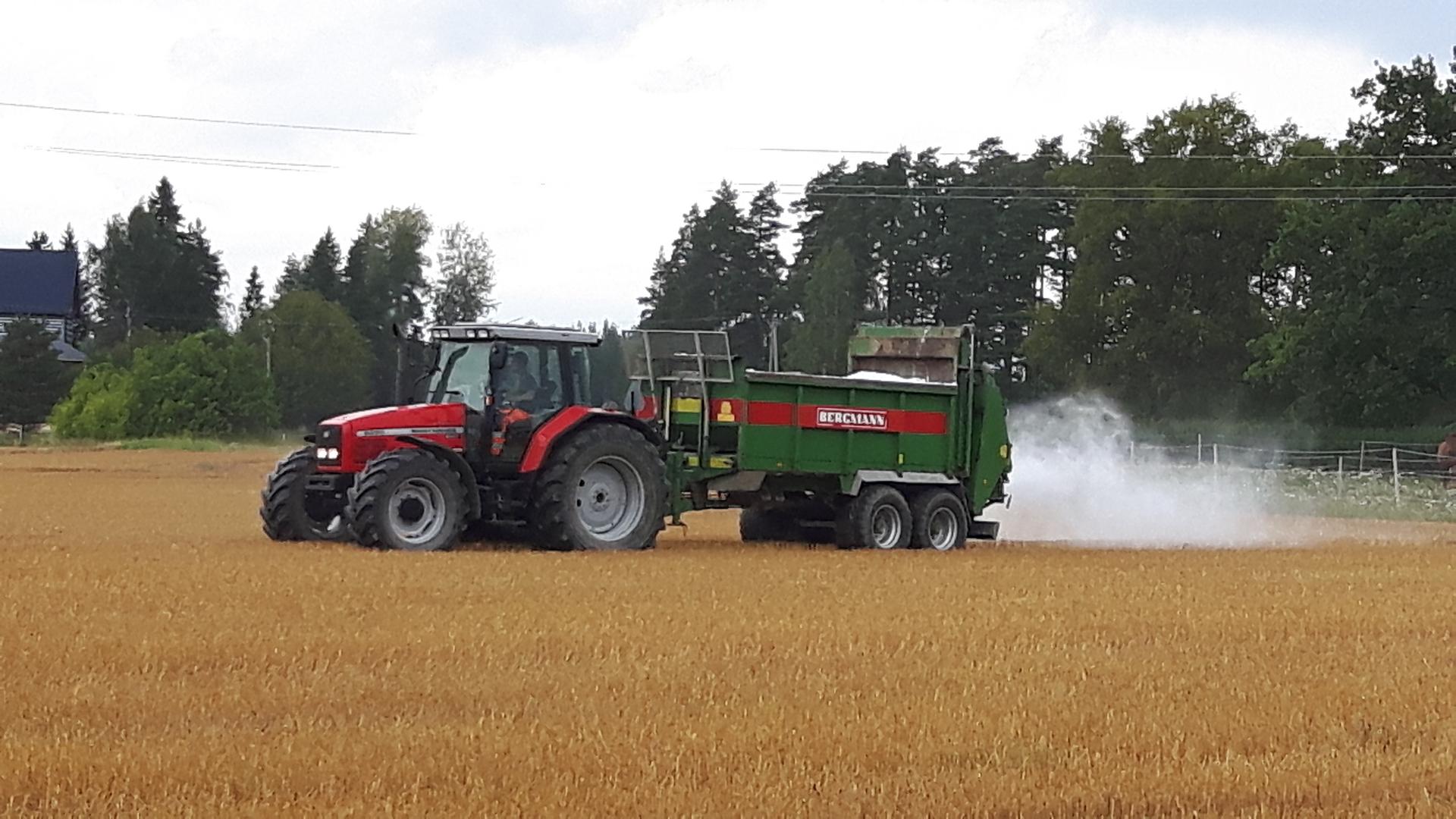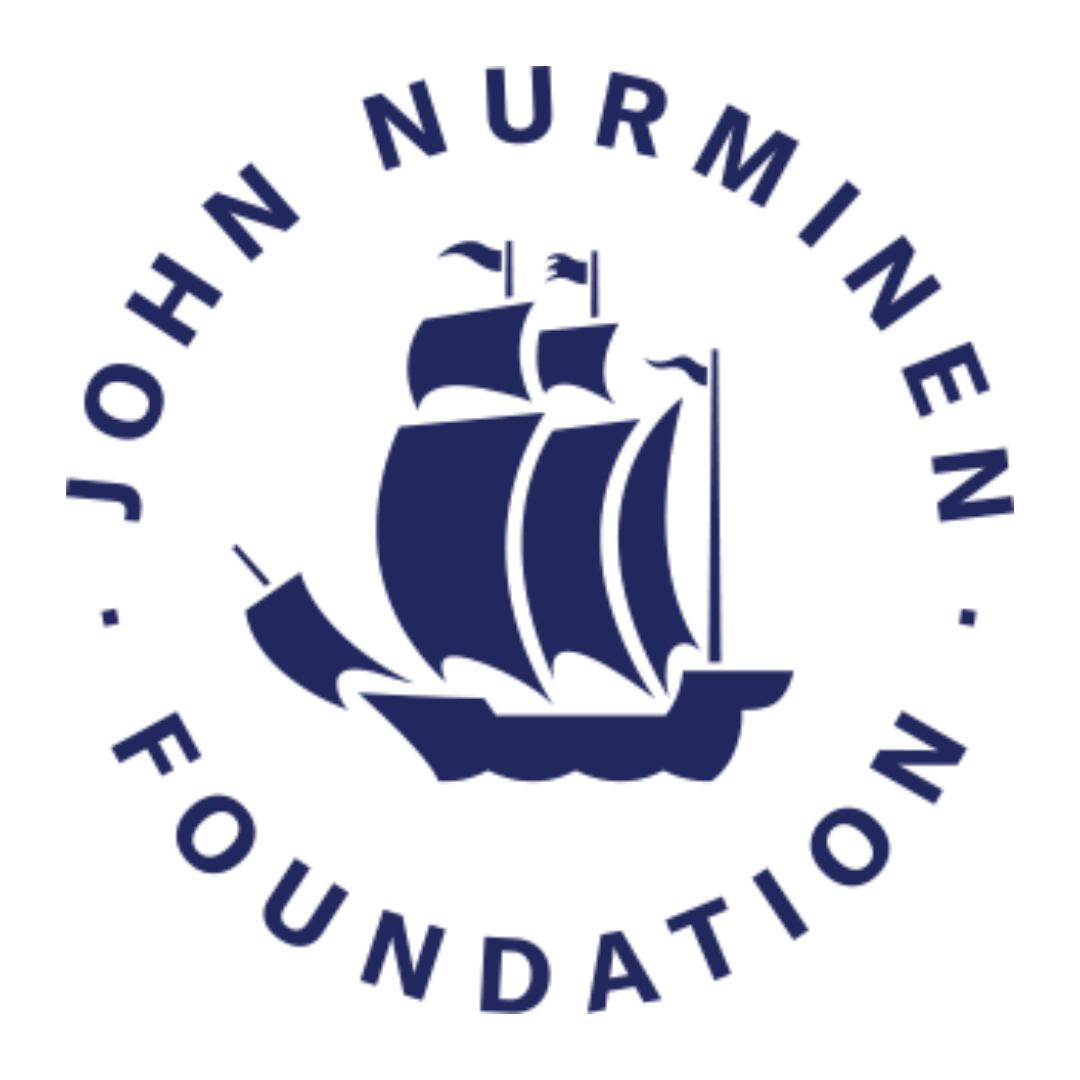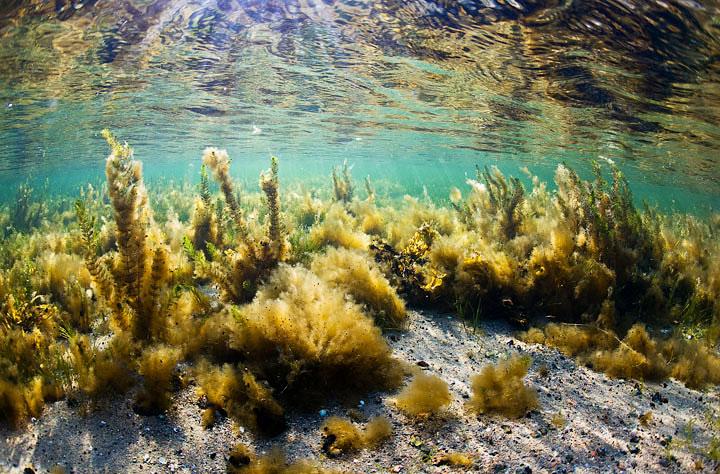Today, the international Project NutriTrade will publish three policy recommendations concerning the Baltic Sea protection. They introduce an innovative protection measure; examine how it could be promoted in practice and suggest developing more flexible regulatory tools.
Following the recommendations can improve the condition of the Archipelago Sea and the entire Baltic Sea.
Gypsum amendment an excellent method to reduce agricultural emissions
The first recommendation presents a new method that can be applied in agriculture to protect waters by treating fields with gypsum. Reduction of agricultural phosphorus loads play a key role in the protection of the Baltic Sea and gypsum amendment is at the moment be the most efficient way to achieve this.
Use of gypsum has been studied in a large scale pilot in the River Savijoki catchment*, and it has been found to cut agricultural phosphorus load by instantly by about 50 per cent. The method is suitable in southern Finland on as much as 540,000 hectares of field. This would reduce phosphorus emissions into the Baltic Sea by 200–300 tonnes, which almost corresponds to Finland’s reduction target in the Helsinki Commission.
Gypsum application should be tested also elsewhere around the Baltic, such as in Denmark, Poland, Sweden and Estonia. According to preliminary estimates, gypsum treatment of fields could reduce phosphorus load from agriculture into the Baltic Sea by about 25 per cent, that is, by 1,500 to 2,000 tonnes.
The gypsum amendment is not only an effective but also a relatively cheap way to improve water quality.
“The cost for reducing one kilogramme of phosphorus with gypsum is only a third compared to other methods currently used in agriculture. The cost of reducing one kilogramme of phosphorus was about EUR 70 in the pilot carried out in the southwest of Finland,” says Professor Markku Ollikainen of the University of Helsinki.
Gypsum treatment should be included in agricultural support schemes
Project NutriTrade’s second recommendation emphasises that in order to achieve the water protection benefits, the gypsum amendment should be included in the agricultural support schemes starting with the next programme period 2021. Right now is a suitable time to start the preparation work for this inclusion. The key actors in this work are HELCOM, the EU member states and the European Commission.
“We are in favour of extensive government-supported treating of fields with gypsum as a water-protection method. Without it, implementation will be left to individual projects and initiatives, and large-scale water-protection benefits will not be achieved,” says project manager Anna Saarentaus at the John Nurminen Foundation who is the head of Project NutriTrade.
Gypsum tests have been positively received by farmers.
“Treating fields with gypsum in southwestern Finland was a positive experience for the local farmers who participated in the pilot. No adverse effects on the crop yields, soil or aquatic organisms were detected. An important benefit of the gypsum amendment is that it does not reduce the area under cultivation,” says project coordinator Eliisa Punttila of the University of Helsinki.

Companies to contribute to cleaning the Baltic Sea
Project NutriTrade’s third recommendation concerns the possibilities of nutrient compensation in the protection of the Baltic. Nutrient compensation refers to optional reduction of nutrients – verified with models or measurements – beyond the statutory level.
In future, utilisation of nutrient compensations should be compatible with environmental permit systems. Environmental permit applicant would have two alternative methods to compensate for emissions: either by implementing the corresponding amount of emission reductions in the water body or to pay someone else for implementing them. The need for such flexibility is created by an interpretation of the EU directive.
“Water protection within the EU is harmonised by the Water Framework Directive. Few years ago, the European Court of Justice interpreted that its water quality standards are legally binding in what is known as the Weser ruling. If an economic activity increases pollution that poses pressure on critical water quality elements, it cannot be granted an environmental permit. This ruling, which does protect water quality, does not match with constantly changing economic realities and the cost-efficiency required by the Water Framework Directive,” says Senior Scientist Antti Iho of Natural Resources Institute Finland.
The possibilities and preconditions for utilising nutrient compensations with regard to environmental permits are currently being investigated by the environmental administration. The option for utilisation has been or will be introduced into environmental legislation in, for example, Åland Island, Sweden and Denmark.
Project NutriTrade is one of the flagship projects of the EU’s Baltic Sea Strategy. These projects aim at significant reductions in emissions, thereby helping the Baltic Sea to return to a good ecological condition. The greatest amount of funding for Project NutriTrade comes from the EU Interreg Central Baltic Programme. The project is headed by the John Nurminen Foundation in cooperation with Natural Resources Institute Finland, University of Helsinki, Swedish University of Agricultural Sciences SLU and Anthesis Enveco.
Founded in 1992, the mission of the John Nurminen Foundation is to save the Baltic Sea and its heritage to future generations. The goal of the foundation’s Clean Baltic Sea projects is to improve the condition of the Baltic Sea with tangible measures that will reduce the load and environmental risks directed at the sea. The Clean Baltic Sea projects are funded by private donations and public funds.www.johnnurmisensaatio.fi
*SAVE is a joint project of the University of Helsinki and the Finnish Environment Institute, funded by the Finnish Ministry of Environment.
More information
Markku Ollikainen
Professor, University of Helsinki
Tel. +358 29 415 8065
markku.ollikainen(at)helsinki.fi
Eliisa Punttila
Project Coordinator, University of Helsinki
Tel. +358 29 415 806
eliisa.punttila(at)helsinki.fi
Antti Iho
Senior Scientist, Natural Resources Institute Finland
Tel. +358 29 532 6159
antti.iho(at)luke.fi
Anna Saarentaus
Project Manager, John Nurminen Foundation
Tel. +358 40 719 0208
anna.saarentaus(at)jnfoundation.fi
Policy recommendations:
- NutriTrade Policy Brief No 1: Gypsum amendment of fields: a cost-efficient measure for the Baltic Sea Water quality benefits and feasibility for large scale use in agriculture
- NutriTrade Policy Brief No 2: Gypsum amendment of fields: a cost-efficient measure for the Baltic Sea Including gypsum in the Agri-Environmental Policy
- NutriTrade Policy Brief No 3: Nutrient Offsets – a potential tool to reconcile growing economy with strict water quality standards


